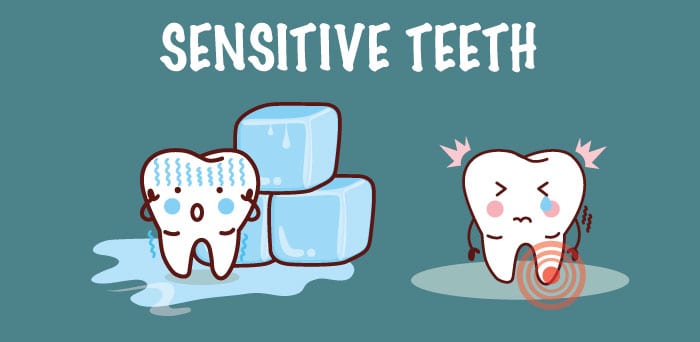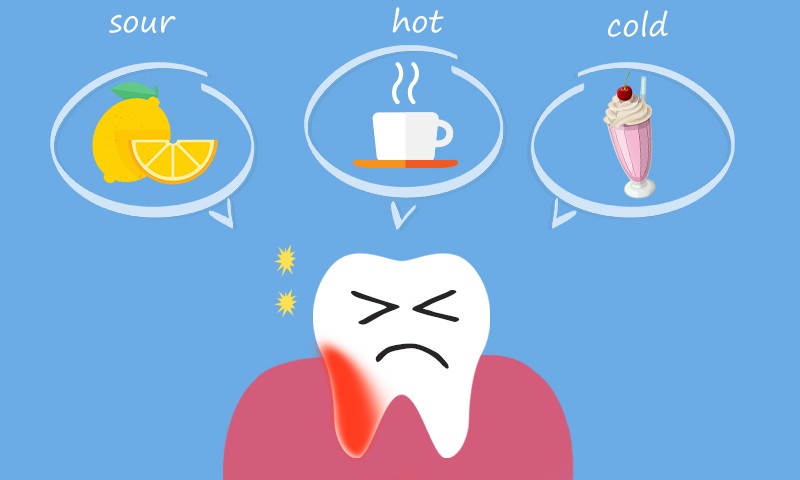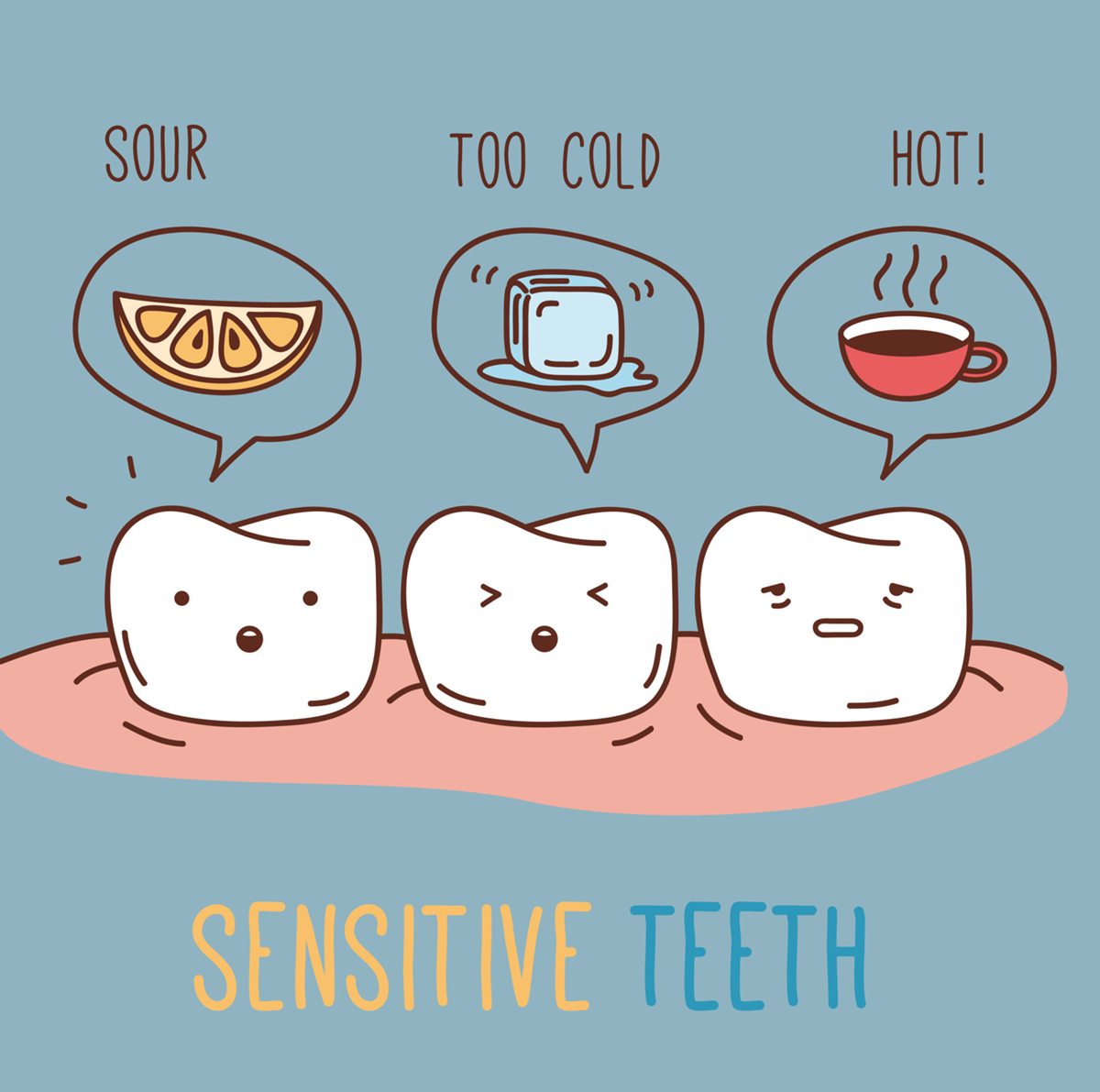Sensitive teeth are often the result of worn tooth enamel or exposed roots. Sometimes it can be caused by chipped, broken or decayed teeth, but here we are going to focus on the “zing” feeling you get when your tooth gets exposed to cold. This can really bug you when you drink or eat something cold, or sometimes even just breathing in cold air. (Especially in our Montreal winters) So what causes this type of problem, and how can we treat it.

What are the Causes of Sensitive Teeth?
Your teeth are made up of layers of different tooth structures. The outer layer is enamel, and this is the hardest and least likely to be sensitive. Below the enamel is the dentin. Dentin is softer (but still quite hard) and has microscopic nerves running through it. Finally, the roots of your teeth are covered in cementum, a structure that allows the ligament surrounding your tooth to hold onto the tooth. The enamel is the only structure that should be exposed in your mouth. As it wears away, chips away, or as your gums recede, the dentin and cementum may become exposed, and these can react to cold, hot or sweet stimuli. Sensitive teeth can also be due to tooth grinding, decay, gingivitis, acidic foods, or recently completed dental work. All of these problems have different solutions, but let’s focus on sensitivity due to exposed tooth structure.

How to Reduce Tooth Sensitivity
Even if your teeth are already sensitive, there are things you can do to improve the situation. Make sure you brush and floss regularly, always with a soft-bristled toothbrush. Rinsing with a fluoride and antiseptic mouthwash daily can help as well. Use toothpaste specifically formulated for sensitive teeth, and if one brand doesn’t work, try another. They all use slightly different formulations and some may be more effective for you than others. Avoid acidic food and drink, which soften enamel and can irritate sensitive dentin. The accumulation of plaque around where your gums and teeth meet can also cause sensitivity, so be sure to brush these areas clean. However, it is also important to note that you don’t want to brush too hard, as this could result in increased recession. Watch this video to see our recommended brushing technique.
Sensitive Teeth Treatment
If you are still feeling sensitive teeth despite following the above steps, make sure to talk to your dentist. There are additional procedures that can be done in the clinic. Exposed areas can be covered by filling material, desensitized with various products or even have the receded gums replaced with a gum graft. Sometimes teeth can also be sensitive for a few days or weeks following a new filling or crown. This is normal and usually passes without intervention. Of course, with prolonged sensitive teeth, you’ll want to rule out any other problems related to caries or gingivitis. When you talk to your dentist, describe the pain – duration, triggers, and things that make it feel better. Together you and your dentist will find a solution and hopefully get your teeth in top shape for years to come.
Sensitive teeth can be prevented or treated; don’t suffer in silence! Contact us to set up your appointment today.



Thanks for sharing this dental related blog about What are their causes, reducing methods, teeth treatment for sensitivity in teeth?
Sensitivity is the most common problem nowadays. We feel sensitivity mostly for decayed or broken teeth while eating something cold or hot. The outer hard covering of teeth called enamel is the only part exposed to your mouth & when it gets wears away, chips away, it reacts to the hot, cold or sour taste of food. We can reduce this problem of sensitivity by brushing and flossing regularly using soft bristles and by avoiding acidic food and drinks. You can also take some treatment from your dentist.